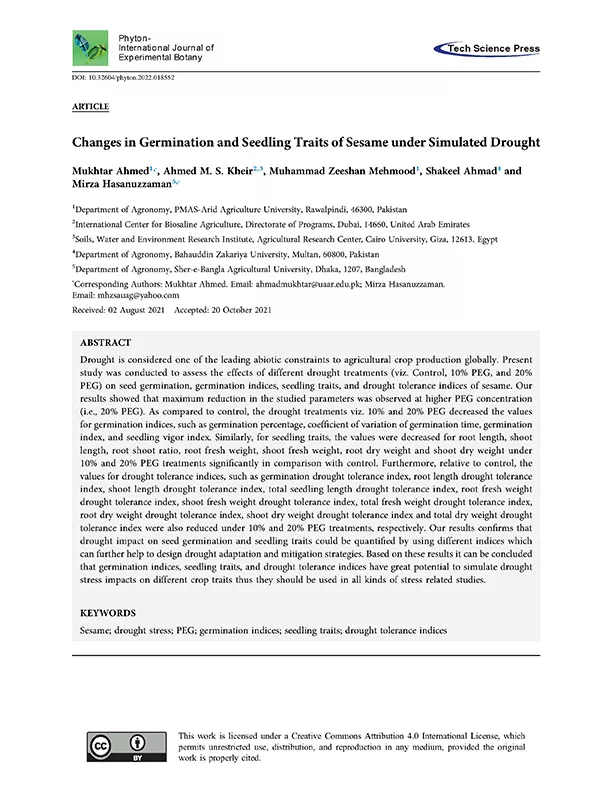Changes in Germination and Seedling Traits of Sesame under Simulated Drought
Drought is considered one of the leading abiotic constraints to agricultural crop production globally. Present study was conducted to assess the effects of different drought treatments (viz. Control, 10% PEG, and 20% PEG) on seed germination, germination indices, seedling traits, and drought tolerance indices of sesame. Our results showed that maximum reduction in the studied parameters was observed at higher PEG concentration (i.e., 20% PEG). As compared to control, the drought treatments viz. 10% and 20% PEG decreased the values for germination indices, such as germination percentage, coefficient of variation of germination time, germination index, and seedling vigor index. Similarly, for seedling traits, the values were decreased for root length, shoot length, root shoot ratio, root fresh weight, shoot fresh weight, root dry weight and shoot dry weight under 10% and 20% PEG treatments significantly in comparison with control. Furthermore, relative to control, the values for drought tolerance indices, such as germination drought tolerance index, root length drought tolerance index, shoot length drought tolerance index, total seedling length drought tolerance index, root fresh weight drought tolerance index, shoot fresh weight drought tolerance index, total fresh weight drought tolerance index, root dry weight drought tolerance index, shoot dry weight drought tolerance index and total dry weight drought tolerance index were also reduced under 10% and 20% PEG treatments, respectively. Our results confirms that drought impact on seed germination and seedling traits could be quantified by using different indices which can further help to design drought adaptation and mitigation strategies. Based on these results it can be concluded that germination indices, seedling traits, and drought tolerance indices have great potential to simulate drought stress impacts on different crop traits thus they should be used in all kinds of stress related studies.
Year
2021
Publication Source
Phyton - International Journal of Experimental Botany
Publication type
Scientific Paper









